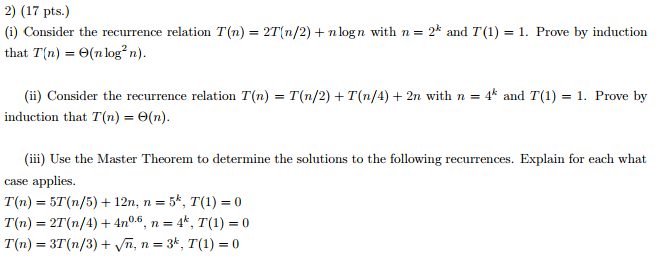Question: Consider the recurrence relation T(n) = 27(n/2) + n log n with n = 2^k and T(1) = 1. Prove by induction that T(n) =

Consider the recurrence relation T(n) = 27(n/2) + n log n with n = 2^k and T(1) = 1. Prove by induction that T(n) = circleminus (n log^2 n). Consider the recurrence relation T(n) = T(n/2) + T(n/4) + 2n with n = 4^k and T(1) = 1. Prove by induction that T(n) = circleminus (n). Use the Master Theorem to determine the solutions to the following recurrences. Explain for each what case applies. T(n) = 5T(n/5) + 12n, n = 5^k, T(1) = 0 T(n) = 2T(n/4) + 4n^0.6, n = 4^k, T(1) = 0 T(n) = 3T(n/3) + squareroot n, n = 3^k, T(1) = 0
Step by Step Solution
There are 3 Steps involved in it

Get step-by-step solutions from verified subject matter experts


